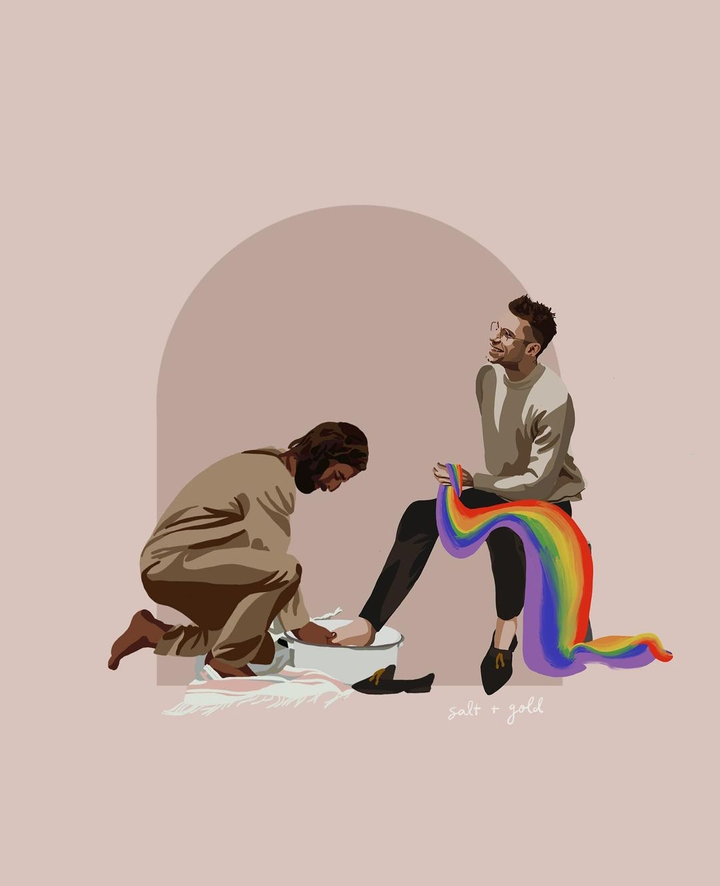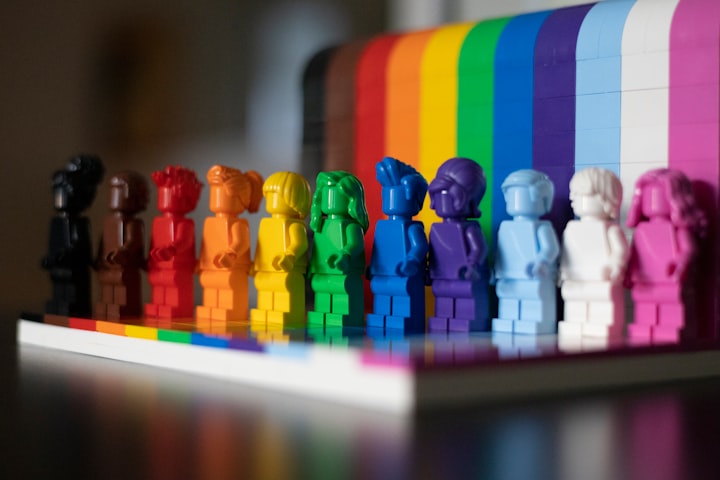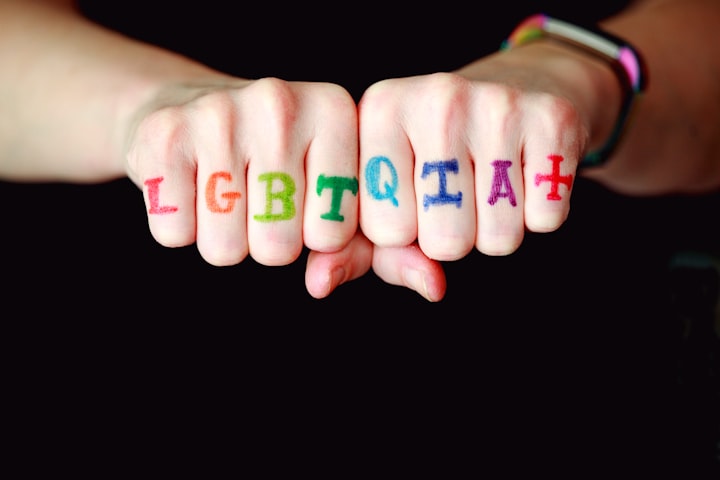Same-sex Marriage: An Inconceivable Union?
"Love is love" and "love is enough" arguments don’t work, as marriage is not just about love. Marriage has multi-faceted features like anthropological, biological, and social aspects intrinsically tied to itself.

The goal of this article is not to make a biblical case against homosexual behaviour, but rather a case against the so-called homosexual marriage from the traditional marriage. The Bible and Christian ethics affirm the truths I’m going to defend here, though I’m not going to directly appeal to them. There may be denominations blessing same-sex unions and political parties accepting same-sex marriage, but are these enough to give it the actual status of marriage? So, here we examine the fundamental values that underpin the concept of marriage and question whether same-sex marriage truly meets those criteria. As I write this, petitions to legalise same-sex marriages are being heard by the Indian Supreme Court. Although some may equate this to the decriminalisation of homosexual behaviour (Article 377 in 2018), these two issues are fundamentally distinct. The latter concerns personal choice, whereas the former involves redefining marriage for all individuals. As adults, you may have the liberty to do whatever you want, whether moral or immoral, but you cannot redefine something foundational like marriage for everyone else. So defending traditional marriage is not something against same-sex relationships or decriminalisation of Article 377. This war is waged against the very bedrock of society, the family itself, and undermines the family unit that has served as the cornerstone of human civilization for millennia.
The Novel Idea of Same-sex Marriage
Marriage has been a fundamental institution throughout human history, and while governments and cultures may have recognized and formalized it, they did not create it. The institution of marriage is a natural concept that predates governments. Therefore, it is not the place of any particular group to redefine marriage for everyone else. One of the arguments used by the petitioners is that homosexual practices have existed since ancient times and therefore it should favour their case. Yes, it’s true that homosexuality is not something new to our times, but what we need to understand is that even when it existed, there was no consideration given to the idea of two people of the same sex getting married. It was thought to be something impossible. So, while homosexual behaviour existed in various forms in previous generations throughout human history, the concept of same-sex marriage is a very new one. The idea of marriage being a union between a man and a woman is true and consistent across various cultures, religions, and historical periods. The understanding of marriage as a union between a man and a woman is acknowledged by several belief systems, including Judaism, Christianity, and Islam, as well as by philosophers from ancient Greece, Rome, and the Enlightenment era who were not influenced by these religions. It is also recognized by common and civil law and by the legal systems of ancient Greece and Rome1. These secular and religious belief systems, alike, never facilitated the marriage of a same-sex couple.
We had to wait until the dawn of the sexual revolution, which tried to redefine gender and marriage. They wanted to expand the idea of marriage to make it more inclusive. The attempt to redefine marriage to include same-sex couples is an attempt to undermine the very concept of marriage itself while still wanting to participate in it. What their attempt to expand the idea of marriage actually does is, destroy the very idea of marriage. It’s like chopping off the branch of a tree on which one wants to sit.
Truth, Fact and Reality
"Love is love" and "love is enough" arguments don’t work, as marriage is not just about love. While love is a very important aspect of marriage, it is not the only characteristic that grounds it. Marriage has multi-faceted features like anthropological, biological, and social aspects intrinsically tied to itself. Traditional marriage has always affirmed three fundamental truths2.
The anthropological truth that men and women are different and complementary. Men and women are different physically, psychologically, and physiologically.
The biological fact that reproduction depends on a man and a woman and their union alone can produce children.
The social reality that children need both a mother and a father, and that provides the best environment for raising children.
All these truths are challenged by the concept of same-sex unions. The revisionist view of marriage negates these truths and weakens marriage as just a system to approve emotional bonds or distribute legal privileges. This reduces the important foundation of marriage to merely an intense emotional and romantic bond. If marriage is redefined to exclude the expectation of sexual complementarity between a man and a woman, then other significant features of marriage, such as monogamy, exclusivity, and permanence, may also become non-compulsory and hence optional.3 These norms are vital since they stabilize marriage, provide a secure setting for raising children, and give footing to something more substantial than romantic temperament. If marriage was merely based on intense emotional attachment, the principles underlying marital norms would become irrelevant. There is no fundamental reason to expect an emotional union to be permanent, restricted to only two individuals, or necessarily sexual, and exclusive in nature (as opposed to an "open" relationship). Additionally, there would be no inherent obligation for such a union to be oriented towards family life or shaped by its requirements.4
The principles of monogamy and sexual exclusivity (rather than open marriage) promote child-rearing in an environment that maximizes the chances of children being brought up by their biological mother and father. These principles also facilitate shared accountability and dedication between spouses, ensure that children receive adequate attention from both parents. Same-sex unions undermine sexual complementarity which leads to the dismissal of monogamy, sexual exclusivity, and permanence. There is an abundance of data pointing to how the majority of same-sex unions engage in open relationships. That’s the slippery slope you, by default, reach once you abandon foundational truths.
The norm of permanence guarantees that children will receive care from both their mother and father until they reach maturity. When the key features of traditional marriage, like monogamy and sexual exclusivity, are challenged, then there will be nothing called sexual fidelity.
"Marriage exists to bring a man and a woman together as husband and wife to be father and mother to any children their union produces."5
Detrimental Impact on Children
Data from sociology suggests father-mother environment is the best for raising kids. Rutgers University sociologist David Popenoe says, "The burden of social science evidence supports the idea that gender-differentiated parenting is important for human development and that the contribution of fathers to child rearing is unique and irreplaceable.”7 A child needs both his father and mother as they play different functional roles in upbringing. Evidence from social science shows how society faces the consequences of fatherlessness, in the form of children ending up in poverty, becoming criminals, and ending up in jail. Being raised in a married family reduced a child’s probability of living in poverty by about 82 percent8. A same-sex union of two apparent mothers cannot make up for the absence of a father in the family. Similarly, two men cannot compensate for the role mothers do in bringing up boys and girls. Motherless teenage boys are more likely to have higher levels of aggression and lesser ability to confidently enter social situations9.
What Lies Ahead?
Ryan T. Anderson rightly points out the ridiculous destination to which we are headed if this modern revisionist view of marriage is given legal recognition. Dr.Anderson explains that, on a modern framework, "marriage is simply an intense emotional union, whatever sort of interpersonal relationship consenting adults, whether two or 10 in number, want it to be—sexual or platonic, sexually exclusive or open, temporary or permanent. This leaves marriage with no essential features, no fixed core as a social reality. It is simply whatever consenting adults want it to be"10. Marriage is beneficial not only to the family but also to the society as a whole. As opposed to homosexual unions, marriage helps to channel procreative love to bring about life in a responsible, committed, and stable setting. The slippery slope of recognizing same-sex unions as marriage will be to accept all sorts of atypical families. So, the activists could go on to argue for the equality and legal recognition of polygamy. "Couples" would just be another category along with "throuples" where a kid would have three parents. Also, it will be a nightmare for civil law institutions, government bodies, and the entire society, and the next generation will be in absolute chaos. The future of the nation depends on marriage, and the government, Supreme Court, and all citizens must do everything to preserve authentic marriage rather than undermine it.
Endnotes:
- Girgis et al., What Is Marriage? Man and Woman: A Defense(New York: Encounter Books, 2012).
- Ryan T. Anderson., Marriage: What It Is, Why It Matters, and the Consequences of Redefining It(Backgrounder, Report 2775,2013) p. 8.
- See Girgis et al., What Is Marriage?
- Ryan T. Anderson., Marriage: What It Is, Why It Matters, and the Consequences of Redefining It(Backgrounder, Report 2775,2013) p. 3.
- Ibid., p. 12.
- John Corvino and Maggie Gallagher, Debating Same-Sex Marriage (Oxford, U.K.: Oxford University Press, 2012), p. 94.
- David Popenoe, Life Without Father: Compelling New Evidence That Fatherhood and Marriage Are Indispensable for the Good of Children and Society (New York: The Free Press, 1996), p. 146.
- Robert Rector, “Marriage: America’s Greatest Weapon Against Child Poverty,” Heritage Foundation Special Report No. 117, September 5, 2012.
- https://prezi.com/-lwtnntonld6/the-effects-of-absent-mothers-in-a-family-system/
- Ryan T. Anderson.,Marriage: What It Is, Why It Matters, and the Consequences of Redefining It(Backgrounder, Report 2775,2013) p. 12.





Comments ()